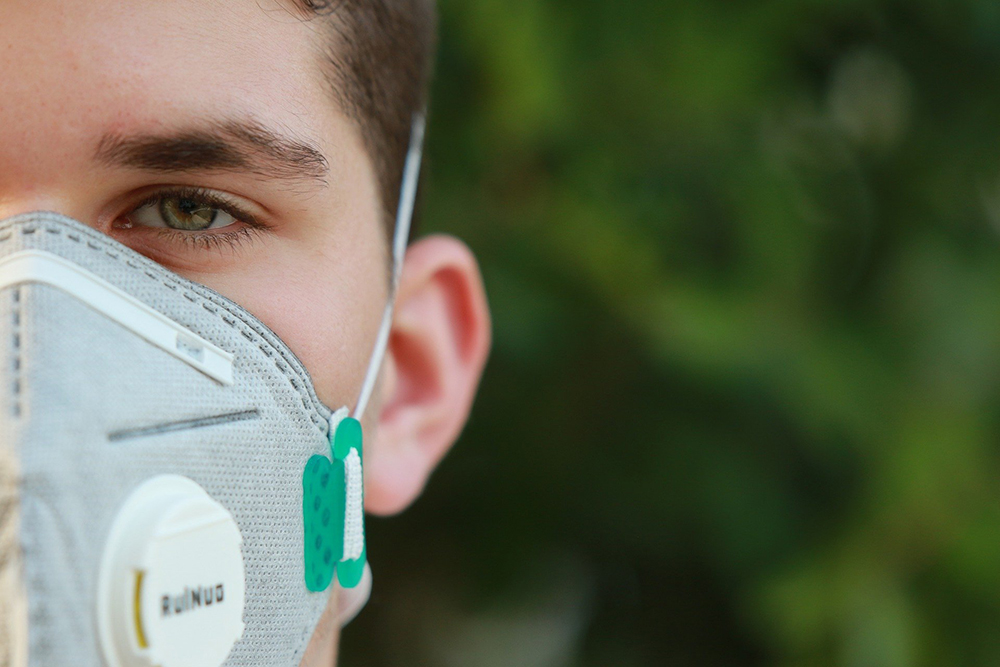Eye Protection
By now most people know how to protect their bodies and themselves when venturing out during this pandemic. But what about your eye protection? Do you know what you need to know about your eyes?
Today we are sharing an invaluable article on the questions you may be asking yourself about eye protection during the Covid-19 outbreak. Full link for this article can be found here: hscnews.usc.edu
Ask the expert: how COVID-19 affects the eyes
With health care information changing daily amidst the COVID-19 pandemic, little attention has been given to its effect on one of the most sensitive parts of our bodies: the eyes. To provide an update, Annie Nguyen, MD, assistant director of the Cornea & Refractive Surgery Fellowship at the USC Gayle and Edward Roski Eye Institute, answers frequently asked questions about whether our eyes are vulnerable to the novel coronavirus.
If COVID-19 droplets land in your eye, are you susceptible to infection?
The evidence of ocular transmission has not been well studied. However, mucus membranes, which line many body cavities and organs including the respiratory tract, are most susceptible to the novel coronavirus and viruses in general. The surface of the eye and inner eyelids are also lined by mucus membranes called the conjunctiva. Therefore, if infected droplets land in your eye, you are possibly susceptible to the infection.
The mode of COVID-19 transmission is still believed to be primarily through respiratory droplets from person-to-person. However, the virus also can live on surfaces up to a few days; therefore, touching an infected surface, then touching your eyes, nose or mouth without washing your hands may lead to infection.
Can cleaning the eyes with water or over-the-counter eyedrops decrease the chance of infection?
The ocular surface has its own protective mechanisms, including antimicrobial proteins and natural lubrication. Therefore, routine cleaning or flushing of the eyes with water is not necessary and may actually strip away some of the ocular surface’s natural protective barriers, leading to increased risk of infection.
If your eyes become irritated or red, using over-the-counter artificial tears may help alleviate your symptoms. If symptoms are persistent, you should contact your eye care provider.
Is it true that contact lens wearers have a higher risk of infection for COVID-19?
With proper hygiene, there is no evidence that wearing contact lenses in itself increases your risk of infection for COVID-19. However, contact lens wearers touch their eyes more often than the average person. If you have a tendency to touch or rub your eyes, it may be best to switch to glasses temporarily, given risk of transmission from rubbing without proper hand hygiene. Also, glasses minimize risk of irritation from contact lens wear and also serve as a barrier that forces you to pause before touching your eyes.
Although not the best protection, glasses can also serve as a partial shield from respiratory droplets. If you do continue contact lens wear, make sure you carefully adhere to contact lens hygiene and wash your hands. If you develop redness or irritation, please discontinue contact lens wear and contact your eye doctor.
Is it true that pink eye is an early sign of COVID-19?
Yes, pinkeye, or conjunctivitis, has been reported to be a possible sign of infection from COVID-19. It is still uncertain exactly what percentage of patients with COVID-19 have ocular manifestations and different sources are reporting different numbers.
Although a recent study in JAMA Ophthalmology reported up to one-third of patients hospitalized with COVID-19 had ocular abnormalities, more studies are still needed. Of course, causes of conjunctivitis that are not COVID-19 related continue to persist.
Can COVID-19 cause temporary or permanent damage to your eyes (perhaps from lack of oxygen)?
Although conjunctivitis, which is a temporary condition, has been linked to COVID-19, at this point permanent eye damage from COVID-19 has not been reported. If a patient were in respiratory distress long enough, theoretically poor perfusion and oxygen deprivation could lead to possible damage to metabolically active tissues, such as the optic nerve or retina, but this has yet to be reported in COVID-19 related cases. In this instance, eye damage would be caused by decreased oxygen, rather than the virus itself.
Can COVID-19 be transmitted through tear droplets and is this something to worry about?
Transmission through infected ocular tissue or fluid has been controversial. Novel coronavirus has been detected in tear samples in a small number of cases. Given the presence of viral particles, it is, therefore, possible to transmit COVID-19, although the risk is likely low. However, the infectivity or clinical significance is not known and additional studies are needed at this time.
What precautions should you take if you are on immunosuppressive medications?
Patients who are immunosuppressed may be more vulnerable to COVID-19 infection, so it is important to adhere to physical distancing measures to minimize risk. Please discuss potential modification of your medication regimen with your physician (uveitis specialist or rheumatologist). In most cases of patients who are not ill, the risk of vision loss from uncontrolled eye inflammation is greater than the possible increased risk of acquiring COVID-19.
Final words and sources
Nguyen later added that the COVID-19 situation is always evolving and that health care professionals are learning more about the virus every day. She derived much of the information from this interview from the following sources:
- Important coronavirus updates for ophthalmologists
- The COVID-19 pandemic: Important considerations for contact lens practitioners
- Characteristics of Ocular Findings of Patients With Coronavirus Disease 2019 (COVID-19) in Hubei Province, China
- Ocular manifestations of a hospitalized patient with confirmed 2019 novel coronavirus disease
- Evaluation of coronavirus in tears and conjunctival secretions of patients with SARS-CoV-2 infection
Further information including a video for patients who may need eye care during the pandemic. Can be found further down the page here: hscnews.usc.edu
Source: hscnews.usc.edu
For more helpful eye care and vision care tips, please visit our main blog page.



Trackbacks/Pingbacks